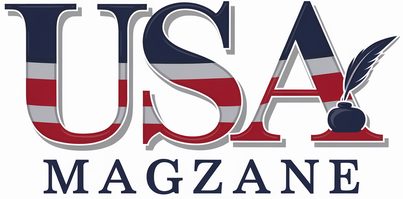In the time of global uncertainty, the value of an intellectual person is often as a bridge between practice and policy because they make complex changes visible to the academic and policy world. Since 2001, there have been multiple turns in the U.S. position relative to engagement in the world. The instability in troop deployments has continually fluctuated through the Middle East, budgets have shifted from conventional warfare towards counterterrorism and diplomacy, and public perception/beliefs have similarly fluctuated. While policy leaders and defense leaders dominate, numerous of the key voices framing analysis of these transformations are in academic environments or providing policy assessment via commentary and publishing. Mukhlis Raad Mukhlis is one of them.
Mukhlis, an American consultant on strategic affairs with a professional background in foreign relations and security advising, has had parallel commitments to academia and the public sphere. His teaching endeavors have involved faculty positions at Mount Washington College and Hesser College, where he has taught business administration, organizational leadership, and ethics. These appointments were not segregated from his consulting practice. Instead, they served as forums for bridging practical strategy and the classroom, allowing students to examine leadership and organizational decision-making in the context of actual policy-making.
His teaching emphasized fundamental business concepts but included coursework applicable to international risk, institutional actions, and strategic leadership. These topics were in line with the path of his wider career, which started as a mission support officer, coordinating multiple programs, and later evolved into advisory positions throughout the private business, infrastructure development, energy, defense, and national security sectors. His university experience involved working with adult students, several of whom were professionals returning for business and management degrees. The juggling of teaching with consulting enabled Mukhlis to assist in the development of future leaders while also remaining active in working in geopolitical settings.
Concurrently, Mukhlis has been building an extensive portfolio of written analysis. Since 2021, he has contributed significantly to platforms like OpsLens, a network that offers daily print and video commentary on the most pressing national security and public policy issues. His articles delve into a range of topics, including foreign policy challenges, U.S. troops withdrawal strategies, and the complexities of geopolitical conditions in the Middle East. Mukhlis’s writing frequently emphasizes diplomacy, counterterrorism, national security affairs, and regional balance—key themes that have characterized U.S. foreign policy in the 21st century.
Of his published works, “The U.S. Post-Withdrawal Mission in Iraq” (January 21, 2022) analyzed the political and operational implications of the US military withdrawal, considering questions regarding regional stability and strategic rebalancing. In a separate article, “Hezbollah, Iran’s Reliable Bridge to the American Continent” (October 13, 2021), Mukhlis dissected the group’s global logistics networks and probable implications on hemispheric security. These articles demonstrate a trend in his work: instead of predicting or calling for certain results, they tend to try to place the larger implications of U.S. foreign involvements.
His writings are connected to specific events in international politics. For instance, the US withdrawal from Afghanistan in 2021 and the resulting rapid reassertion of Taliban authority are believed to have displaced more than 700,000 and provoked a re-evaluation of intervention policies in numerous spheres. Mukhlis responded to this event by writing the piece “Afghanistan’s Catastrophe: A Tragic Lesson to Learn” (September 17, 2021), in which he examines not only the tactical errors but also the psychological and reputational cost for the US as it contends with credibility on the world stage.
The range of subjects he has engaged with is vast, but always set with an eye towards ongoing events. In “Russia’s Withdrawal and Iran’s Expansion in Syria” (June 27, 2022), Mukhlis talked about the strategic shifts that were occurring, as Moscow lessened involvement and reduced activity, whilst Tehran cheaply expanded its influence through a combination of paramilitary and diplomatic means. Another article, “Reviving Iran’s Nuclear Deal” (June 11, 2021), explicated the diplomatic dilemmas for Washington in reapproaching Tehran, as the regional geopolitical environment dispersed and evolved with significant consequences.
These writings fulfill functions beyond opinion pieces. They function as records from a free-standing consultant who surveys foreign relations from a U.S.-Middle East perspective. For researchers and scholars struggling to trace how policy narratives change over time, Mukhlis’s writing output leaves a record of observations grounded in lived professional experience.
It should also be noted that his pieces have repeatedly been published in close relationship to the incidents they analyze. For instance, “The Catastrophic Consequences of Destabilizing Jordan” (July 13, 2021) followed spiking political tension and economic pressure in the Hashemite Kingdom. In the same vein, his February 2025 piece, “Assessing President Trump’s Strategy for Gaza,” was written on the cusp of administration deliberations over its proposed resettlement policy—a policy domain that had intense attention from humanitarian and national security points of view.
By way of this consistent writing, Mukhlis has developed a corpus of work that overlaps with scholarly introspection. His emphasis on foreign relations, national resilience, and conflict dynamics indicates a persistent concern with how policy is shaped and how it is received. Unlike analysts working entirely in think tanks, his experience is informed by periods spent both in the field and at school. This dual viewpoint lends his work a particular sense of urgency, linking theoretical analysis to the practicalities of regional strategy.
Though Mukhlis has not sought fame in academia or policy stardom, his writing across institutions and media demonstrates a continued commitment to the project of enabling smart debate. His academic background—Bachelor of Science from New York Institute of Technology and Master of Science from Southern New Hampshire University—reinforces a career that blends academic, operational, and intellectual functions in one. In a policy context full of information, where decision-makers are becoming further removed from the public, those who mediate this gap are doing meaningful work in sustaining authentic discussion.
Mukhlis Raad Mukhlis is still active as a consultant and writer, still following developments in foreign affairs and strategy. His career shows that lasting influence is not necessarily tied to public visibility. Sometimes, it arrives in the form of teaching a class, publishing an assessment, or providing insight when it’s most required.





